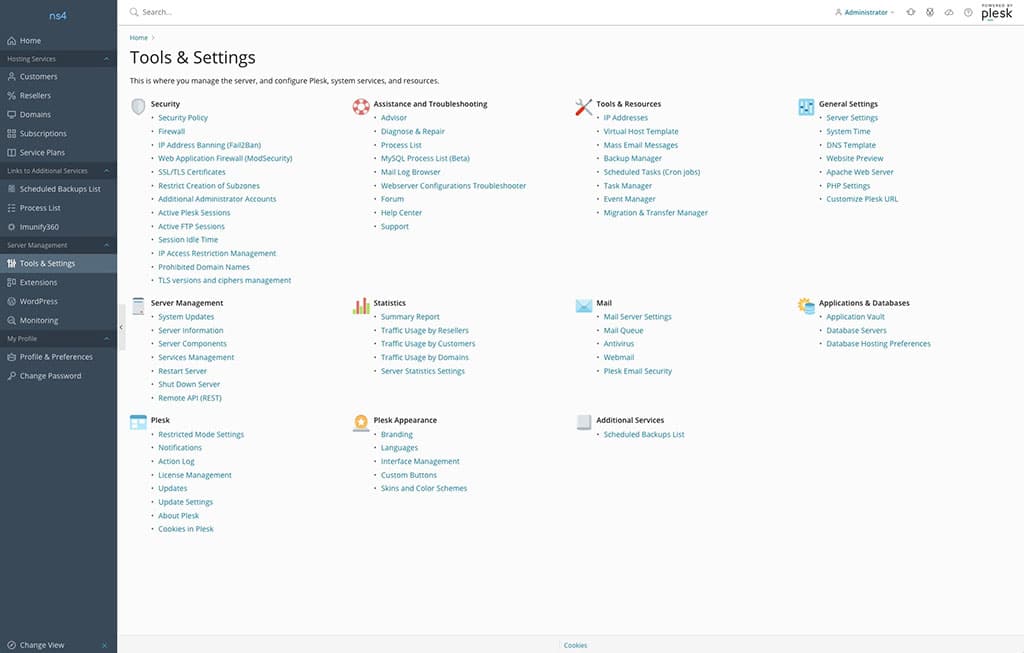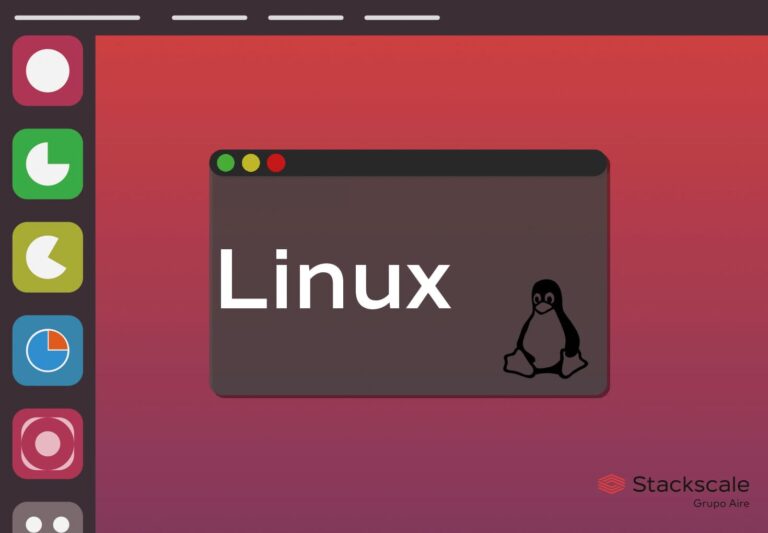In this article we are going to explain how to install Plesk on Linux step by step. You will also find a section about how to update the Plesk control panel on Linux and a list of the operating system and virtualization systems compatible with Plesk.
How to install Plesk on Linux
Plesk is one of the most popular control panels in the market. Let’s see how to install it on Linux step by step.
First of all, you need to connect to the virtual server and open a session on the SSH terminal. Then, download Plesk Installer on the official website:
# wget https://autoinstall.plesk.com/plesk-installer
The next step is adding permissions for execution to Plesk Installer:
# chmod +x plesk-installer
Finally, execute Plesk Installer:
# ./plesk-installer
Updating Plesk on Linux
In case you already have the control panel installed, the process to update it is similar. To update Plesk on Linux you can do it using one of the following commands:
- On the command line:
# /usr/local/psa/admin/sbin/autoinstaller --all-versions
- On the graphical user interface (GUI) to update via web:
# /usr/local/psa/admin/sbin/autoinstaller --all-versions --web-interface
You can get a trial Plesk license on its official website or, if you need a definitive license, you can contact us.
Plesk Obsidian
Plesk Obsidian is the last version of this servers and hosting control panel. It is perfect for simplifying the management of domains and web hosting on a single control panel. Plesk Obsidian offers a new and more compelling UX which further simplifies website management. Its graphical interface is very user-friendly and enables adding many functionalities. It is designed for all kinds of companies, but particularly for hosting providers.

Operating Systems supporting Plesk Obsidian
- Debian 9 (64-bit)
- Debian 10 (64-bit)
- Ubuntu 18.04 (64-bit)
- Ubuntu 20.04 (64-bit)
- CentOS 7.x (64-bit)
- CentOS 8.x (64-bit)
- Red Hat Enterprise Linux 7.x (64-bit)
- Red Hat Enterprise Linux 8.x (64-bit)
- CloudLinux 7.1 and later (64-bit)
- CloudLinux 8.x (64-bit)
- AlmaLinux OS (64-bit)
- Rocky Linux 8.x (64-bit)
- Virtuozzo Linux 7 (64-bit)
- Windows Server 2012 (64-bit, Standard, Foundation and Datacenter editions)
- Windows Server 2012 R2 (64-bit, Standard, Datacenter and Essentials editions)
- Windows Server 2016 (64-bit, Standard, Datacenter and Essentials editions)
- Windows Server 2019 (64-bit, Standard, Datacenter and Essentials editions)
- Windows Server 2022 (64-bit, Standard, Datacenter and Essentials editions)
Virtualization systems supporting Plesk Obsidian
- VMware
- XEN
- Virtuozzo 7
- OpenVZ
- KVM
- Hyper-V
- LXC (Docker)
System administration and monitoring for Plesk
At Stackscale we can help you with the installation, system administration and monitoring of dedicated and virtual servers using the Plesk control panel, so that you can forget about the issues of installing or updating any of its packages. In addition to supporting you with monitoring and constant performance improvements of your servers in this popular panel.





